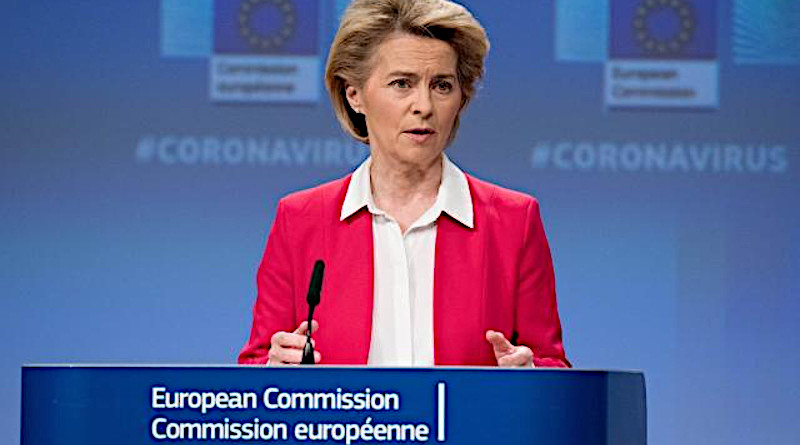2021: Build Back To The Future
By EurActiv
By Jorge Valero
(EurActiv) — The EU will double down on its efforts to use the Covid-19 crisis to accelerate the ‘green’ and digital transitions, fuelled by its €1.95 trillion stimulus, an intense policy agenda and new trade opportunities to improve its global standing.
In 2020, Europe suffered one of its worst nightmares. The deadliest pandemic in a century collapsed health care systems across the continent and forced thousands of businesses to shutter amid the worst recession in the EU’s history.
“It was the most important stress test for the EU institutions, for our message of ‘we are better united’”, said the European Parliament’s spokesperson, Jaume Duch Guillot. “The result has been very positive”, he concluded.
That assessment is shared among senior officials in the Council and the European Commission, chiefly because of the agreement on the €1.2 trillion multi-annual financial framework and the €750 billion pandemic recovery fund.
The uncertainty surrounding the pandemic and the economic recovery is still high. For that reason, the rollout of the vaccine and implementation of national investment and reform plans to channel the EU recovery funds will be the top priorities.
Following a year marked by the disruption caused by the virus, the EU wants to “use the crisis as an accelerator of the Green and digital transitions” in 2021, said the Commission’s chief spokesperson, Eric Mamer.
“Our next multi-year budget and recovery fund offer a rare opportunity to modernise our economies and power forward our green and digital transitions. We must take full advantage of it,” said European Council President, Charles Michel in his newsletter outlining his priorities for 2021.
National governments will have to submit their recovery plans by April. Meanwhile, ministers and the European Parliament will adopt many of the big budgetary envelopes for the next seven year period over the coming weeks.
The economic recovery and pending transformations will be supported by a torrent of policy initiatives in 2021.
The Commission will put forward a package of proposals in June to set the path to achieve a 55% reduction of CO2 emissions by 2030. The billions of euros needed to finance the transition will also come from the private sector, whose contribution will be channelled through the taxonomy and new green bond standards.
Meanwhile, the massive public investment required will be helped by the continued suspension in 2021 of the Stability and Growth Pact, the EU’s rules to control national deficit and debt levels.
The Commission will assess in Spring the general escape clause currently in place to suspend the fiscal rules. In parallel, the EU executive is working on a review of the Pact, which may ease the debt reduction obligations of member states. The proposal will come in 2021, although the date will depend on the evolution of the pandemic and the recovery.
Resilience
Strengthening the social resilience of the Union will be the overarching objective of the Portuguese presidency of the EU during the first half of the year.
Lisbon will seek to give a big push to the European social agenda, and will host a summit on 7-8 May to that end.
Beyond Europe’s borders, and once the Brexit negotiations are off the radar screen, the new year will bring new opportunities with Europe’s largest trade partners. Joe Biden’s US presidency will help to restore the transatlantic relationship, although neither side intends to revive the talks on an ambitious trade deal.
In addition, EU-Chinese cooperation will be strengthened following the closure of their investment agreement, addressing some of the EU’s longstanding complaints about China’s market barriers, illegal subsidies and the forced transfer of technology imposed on foreign firms.
Meanwhile, efforts to boost Europe as a trading power will be supported by the priority given to strengthen the international role of the euro.
Michel will call a euro summit to focus on this issue in March. A second Euro summit will take place in June to take stock of the progress made to strengthen the euro area by completing the banking union, in particular by adding the European Deposit Insurance Scheme, one of the big outstanding battles in the eurozone framework.
Sources close to Michel said that these two euro summits proved his intention to keep eurozone matters “high on the agenda”, together with the fight against the pandemic and the implementation of the big stimulus.

